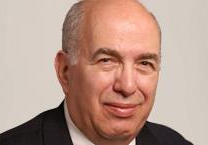The Dividend Yield Cliff

Investors clamor for income, but receiving it through dividends may be riskier than you think.
A number of well-respected money managers have recommended dividend-paying stocks as a smart way to invest in equity markets. Dividends pad returns, cushion downside risk, and preserve upside beta. These managers argue that in a world of ultra-low yields and innumerable uncertainties, having current, predictable income is paramount. Moreover, since dividends require cash flow, the companies offering them tend to be the bellwethers of the industry and less likely to be hit by an equity sell-off.
This “defensive,” positively skewed equity strategy has been recommended time and again for institutional and retail investors, and at first blush, it all seems to make sense. After all, we know that a bird in the hand is worth two in the bush. Yet as the year draws to a close, there are several risk factors that are not broadly acknowledged by proponents of the strategy. In fact, one could argue that being long the dividend trade actually means being long a resolution to the “fiscal cliff,” a popular shorthand term that describes a predicted reduction in the budget deficit through spending cuts and tax increases. (A good article on the fiscal cliff for those interested is available on Ezra Klein’s Wonkblog.)
Hidden Risks
One of the most prominent elements of this impending cliff is the treatment of dividend and capital gain income. Unless Congress acts, dividends will once again be taxed as ordinary income (up to 39.6%) and capital gain taxes will creep up to 10–20%.[1] This article picks on dividends for the simple reason that it is one of the most favored trades out there—and it’s never good to be in a crowded trade, let alone a trade that requires its investors to also become political speculators.
The Irony: Government Needs Income Too!
Under the Bush tax cuts, capital returns were given favorable treatment because it was believed that doing so would spur investment and, ultimately, economic growth. Yet these benefits are realized over the long run and are illusively measured, whereas our deficits (just clocked at over $975 billion) are real and blood red. It’s a hole that needs to be filled and one of the primary reasons your dividend income just might not be spared the guillotine. Congress will do what is most politically expedient, and empirically, economists tend to agree that tax increases are less economically punitive than spending cuts. (See Moody’s Economy.com for information on the multipliers for taxes and spending.)
Real Risks
Even if you discount the math behind which pill is easier to swallow, the United States has always had a progressive tax system. This means that we as a nation believe you should pay more as you earn more. Extending this same logic to our current situation, the wealthy should bear a larger share of the burden. So, why would an income stream harvested almost exclusively by the wealthy be spared? Moreover, extending the Bush tax cuts would be seen as a concession to the wealthy and as fiscally irresponsible for widening the deficit. In an election year, I’d struggle to see how something like this gets passed.
All that said, the real risk is for this cliff to be making headlines at a time when equity selling is already seasonally elevated. So, when money managers tout the dividend yield play, are they setting themselves up to become the next Andrea Gail? Considering the rally we’ve seen to date (on low volumes, weak economic news, and deteriorating earnings), now might be a good time to change course and lighten up on your dividend stocks. Don’t be afraid to take the money and run!
If you liked this post, don’t forget to subscribe to Inside Investing via Email or RSS.
[1] See http://www.nixonpeabody.com/118611.



Boards and management should go to shareholders and explain they’ll simply replace the large dividend with large share buy backs, capital gains.